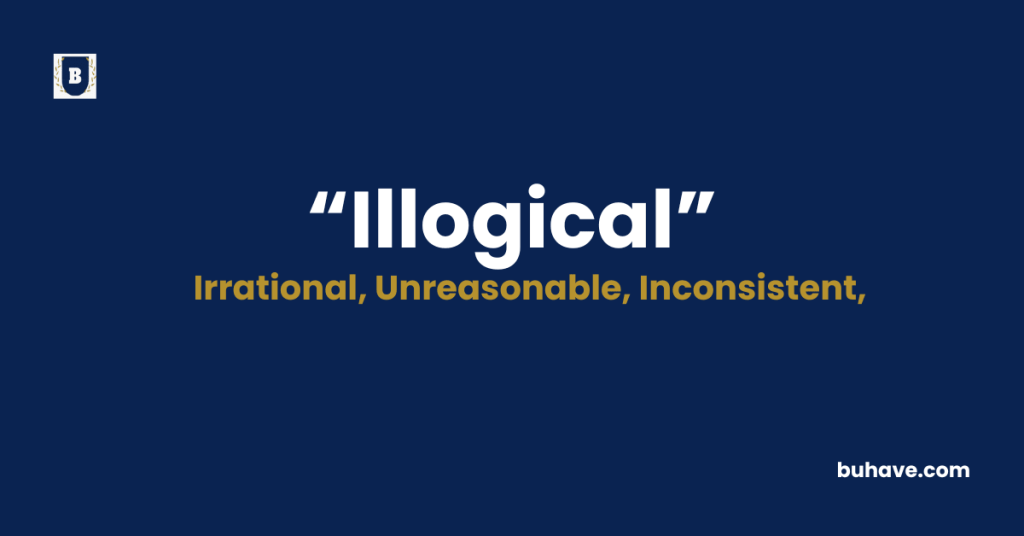The word ‘Illogical’ (Adjective) describes something that lacks clear reasoning, doesn’t follow rational thought, or contradicts itself. In this guide, you’ll learn the full definition, synonyms, antonyms, etymology, and real-life examples of how to use ‘Illogical’ correctly in sentences.
Illogical Explained in Depth
A complete and detailed guide to the word Illogical including meaning, definition, examples, etymology, synonyms, and antonyms.
Meanings of Illogical
Illogical refers to actions, thoughts, or arguments that don’t make sense according to reason or logic. It implies a lack of coherence or consistency, often leading to confusion or flawed conclusions.
Definition
Illogical means not making sense according to the rules of logic or rational thinking. It describes conclusions or behaviors that contradict facts, evidence, or established reasoning. Something illogical may appear random, inconsistent, or based on emotion rather than reason.
Etymology
The word “illogical” comes from the prefix “il-” (a variant of “in-,” meaning “not”) combined with “logical,” which traces back to the Greek word “logikos,” meaning “reasoning” or “rational.” The word entered English in the late 16th century.
Example Sentences
- It’s illogical to expect results without putting in any effort.
- Her argument was passionate but ultimately illogical.
- Jumping to conclusions without facts is often illogical.
- He reacted in an illogical way, ignoring the obvious solution.
- Fearing something just because it’s unfamiliar is illogical.
Illogical Synonyms
- Unreasonable
- Irrational
- Incoherent
- Absurd
- Unsound
- Fallacious
- Unfounded
- Senseless
- Contradictory
- Impractical
Illogical Antonyms
- Logical
- Rational
- Reasonable
- Coherent
- Sound
- Consistent
- Clear
- Analytical
- Sensible
- Intelligible
FAQs about Illogical
Here are some frequently asked questions (FAQs) about the word “Illogical”
1. Can illogical thinking be changed?
Yes, with critical thinking skills and awareness, people can learn to identify and correct illogical patterns.
2. What makes a statement illogical?
A statement is illogical if it contradicts itself, ignores facts, or draws conclusions without sound reasoning.
3. Is being illogical the same as being emotional?
Not always. While emotions can sometimes cloud logic, not all emotional responses are illogical. Illogical thinking specifically refers to flawed reasoning.
4. How is illogical different from irrational?
“Illogical” refers specifically to flawed reasoning, while “irrational” may include actions driven by emotion or impulse, regardless of logic.
5. Are illogical people less intelligent?
No. Everyone can think illogically at times. Intelligence includes the ability to reason, but even smart individuals can have illogical moments.






